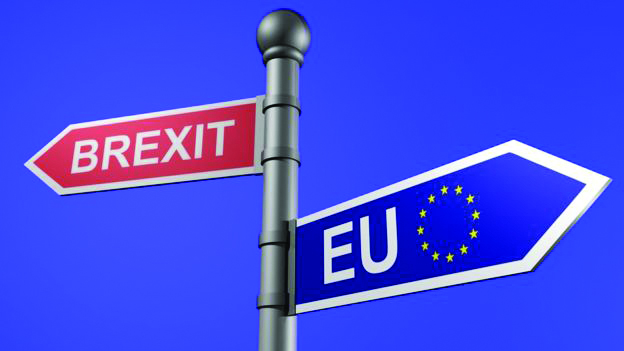
[dropcap]T[/dropcap]he UK is experiencing widespread depletions of fuel and supermarket stock as a shortage of HGV drivers transpires as one of their first major post-Brexit problems- perhaps the first of many.
While members of the Conservative party cite Covid and the haulage industry to be the reasons for the fuel crisis, Brexit is believed by many experts to have amplified it.
Between 15 and 20 thousand of the UK’s HGV drivers were EU nationals before Brexit; many of whom chose to return to their home countries following the Covid-19 pandemic, with no plans to return to work in the UK.
Brexit may have contributed to their decision not to return to Britain as many drivers would opt to avoid the additional bureaucracy and processes that Brexit presents, which can impact their wages.
“Many drivers are paid by the mile or kilometre rather than by the hour, so delays cost them money,” wrote the BBC Factcheck team.
It would not be unreasonable to suggest that many of these EU nationals would simply prefer to work in the EU.
Other factors contributing to this crisis include poor road conditions and transport links for drivers, a significant number of older drivers retiring, and an inability to process new HGV drivers’ tests in a timely manner due to Covid.
Regardless, Brexit has made this crisis a unique one. Its impact is strong enough for Remainers to continue to condemn the woes of Brexit, but weak enough for Brexiteers to continue to present it in a positive light. If anything, this crisis will deepen the divisions between the two sides.
As we continue to progress through the highly contentious and often controversial geo-political turmoil that is post-Brexit, the golden question will linger: Is Britain better off without the EU?
Domestically, this question will continue to garner conflicting answers depending on who you ask and where; and similar crises like this, in which the question of Brexit’s impact is debatable, may only affirm these divisive answers rather than unite them.
Additionally, due to the sheer magnitude of Covid-19’s impact on everything, it will be very difficult to determine the role of Brexit in future crises- and how proportionate that is to Covid.
If the present is anything to go by, any report specifying the role of Brexit in these hypothetical future crises will be spotlighted or shot down by various politicians and media outlets, depending on what their views on Brexit are.
This, once again, will serve to deepen divisions further as many will still struggle to agree on an answer to that golden question.
Britain’s relationship with their EU neighbours will continue to deteriorate too, as lingering and complicated Brexit dealings may present conflict between the nations.
Britain’s relationship with France has already deteriorated somewhat, following disputes between the two nations over Jersey’s fishing waters, with French trawlers being denied permits to fish in the territory.
France have threatened to cut power to the British crown dependencies of the Channel Islands in retaliation to what they believe is a betrayal of their Brexit agreement, with France claiming to grow increasingly impatient as they believe this to not be the first time such a claim of betrayal has happened.
“Our patience has clear limits… We’ve negotiated calmly and nicely for nine months now, that’s enough,” said France’s European Affairs Minister Clement Beaune.
“[The UK] think they can live all by themselves,” he said.
This has escalated tensions between the two nations; and if this dispute in any way reflects the years ahead, we could be looking at some tumultuous few years for Europe.
Looking forward, as more post-Brexit issues will arise between the UK and EU nations, one must consider that golden question.
To appear strong, Britain needs that answer to be yes. They need to show the world that they are better off without the EU; that they are influential and resilient, and are just as powerful as somewhere like the US.
EU powerhouses need that answer to be no. Countries like Germany and France need to showcase how beneficial the EU can be for its nations, to discourage other countries from leaving. The ‘Stronger Together’ sentiment is about to be put to the test.
It’s not likely that the golden question will be answered; and will instead deepen divides between the UK and EU, similar to how it divides Brexiteers and Remainers.
Both the Conservatives and their EU counterparts will do everything in their power to push the narrative in their own favour. Both will spotlight the feats of their respective administrations, and both will analyse each other’s faults with a higher degree of scrutiny.
Certain media outlets will once again pick up and run with the information that specifically appeals to their bases, and members of that base will feed that information down their respective echo chambers, leading to divided groups who do not have the whole picture.
As we head into a decade that will no doubt be defined by its bleeding-edge technologies and the hyper-interconnectedness that comes with it, the world will be watching; and all parties involved in this spat will want to at least give off the impression that they are the ones on top.
Daniel Durand
Image Credit: BBC



